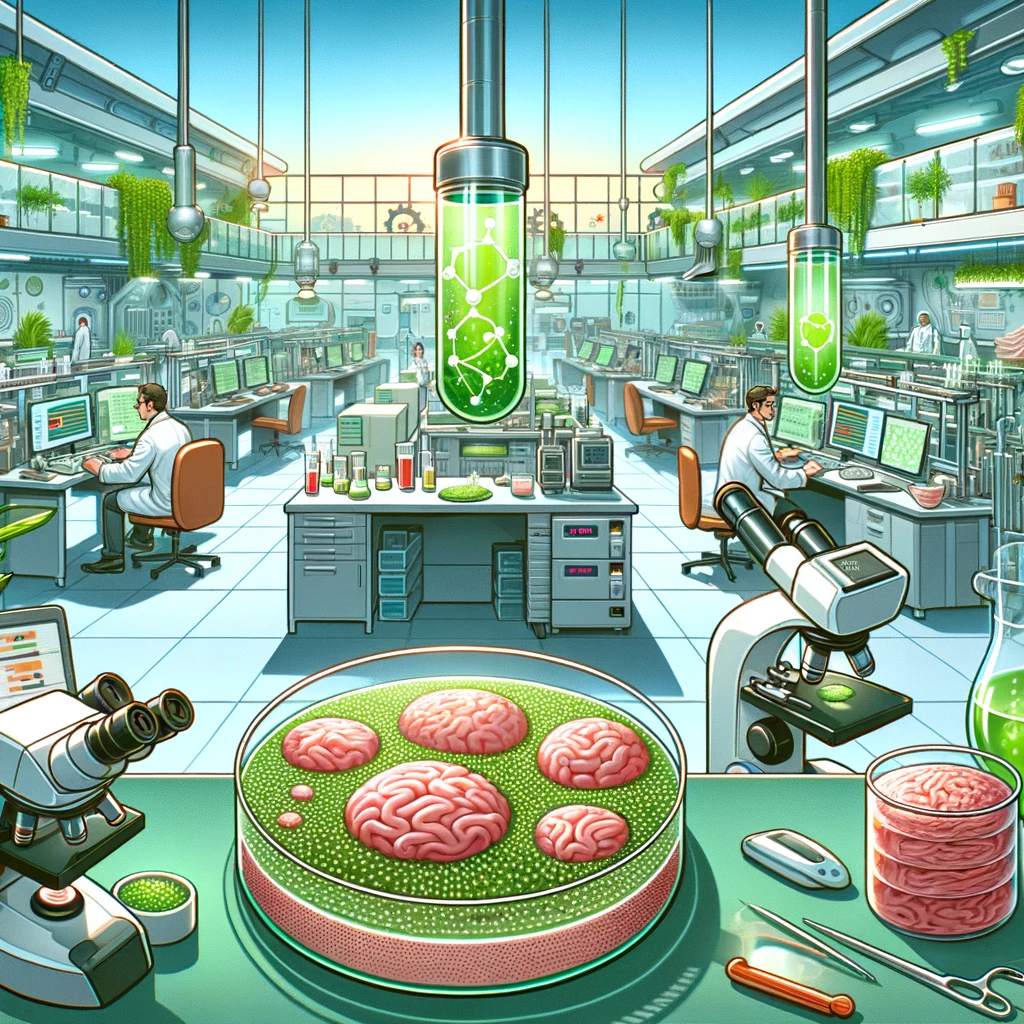
Cultured Meat: The Future of Sustainable Food Production
Imagine a world where the meat on your plate is not from a slaughtered animal but grown in a lab! This revolutionary idea isn’t just a fantasy anymore; it’s rapidly becoming a reality, thanks to the field of cell biology and its application in cultured meat production. The article Advances and Challenges in Cell Biology for Cultured Meat from Annual Reviews delves into this fascinating subject, revealing how science is reimagining the way we produce and consume meat.
What is Cultured Meat?
Cultured meat, also known as cultivated meat, is produced using animal cells, not by raising and slaughtering livestock. This process starts by isolating animal cells, typically stem cells, which are then nurtured in a controlled environment to grow and multiply. The result? Real meat that’s biologically identical to what we get from animals, but produced in a more sustainable, ethical, and potentially healthier way.
Why Cultured Meat?
The shift toward cultured meat isn’t just a trend; it’s a necessary step towards sustainability. Traditional livestock farming is resource-intensive, contributing to greenhouse gas emissions, land degradation, and water overuse. Cultured meat offers a promising solution to these issues, aiming to reduce the environmental footprint of meat production while also addressing animal welfare concerns.
The Role of Cell Biology in Cultured Meat
At the heart of cultured meat production lies the complex world of cell biology. The process involves several steps:
- Cell Selection: Choosing the right type of cells, like embryonic or adult stem cells, is crucial for successful meat production. Each type has its benefits and challenges, including how they proliferate and differentiate into muscle or fat tissue.
- Proliferation and Differentiation: Once the cells are selected, they need to multiply and then transform into the specific types of cells found in meat, such as muscle and fat cells. This step is vital for the texture and taste of the final product.
- Bioprocess Design: Scaling up cell culture to produce meat in large quantities is a major challenge. It involves creating optimal conditions for cell growth and differentiation, including the right nutrients and physical parameters like temperature and pH.
- Tissue Formation: Finally, these cells need to be assembled into a structure that resembles real meat. This step is crucial for achieving the right texture and nutritional profile.
Challenges and Future Prospects
While the science of cultured meat is advancing rapidly, several challenges remain. These include finding cost-effective ways to scale up production, ensuring product safety, and gaining consumer acceptance. Additionally, regulatory frameworks for cultured meat are still evolving.
The Impact of Cultured Meat
The potential impact of cultured meat is enormous. It could significantly reduce the environmental footprint of meat production, improve animal welfare, and offer a new source of nutritious food. Moreover, it could lead to a shift in agricultural practices and open up new avenues in biotechnology and food science.
Conclusion: A Food Revolution in the Making
Cultured meat represents a fascinating intersection of science, ethics, and sustainability. As research continues to address the challenges in this field, we may soon witness a significant transformation in how we produce and consume meat. The article “Advances and Challenges in Cell Biology for Cultured Meat” is an excellent resource for anyone interested in understanding this groundbreaking technology and its potential to change the world.
Unlock the Secrets of Science:
Get ready to unlock the secrets of science with ‘This Week in Science’! Our newsletter, designed specifically for educators and science aficionados, delivers a weekly digest of revolutionary research, innovative discoveries, and motivational tales from the scientific frontier. Subscribing is your key to a treasure trove of insights that can revolutionize your approach to teaching and learning science. Sign up today at no cost and start a journey that deepens your understanding and passion for science.



